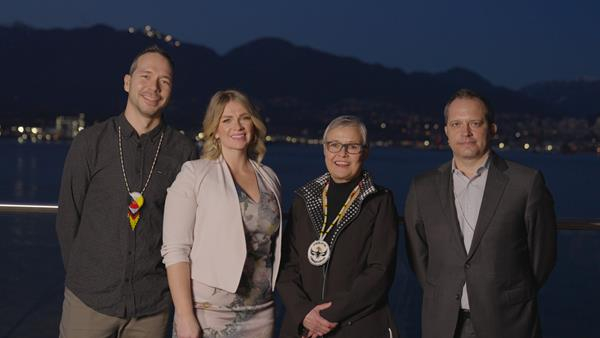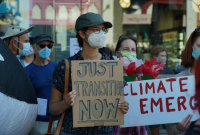Support strong Canadian climate journalism for 2025
If the Coastal GasLink pipeline is completed, 16 B.C. First Nations will have a combined 10 per cent ownership stake in the project.
All 20 First Nations with existing benefit agreements along the pipeline route were offered the opportunity to become business partners through equity ownership, according to TC Energy Corp.’s announcement on March 9.
For the First Nations that signed on, the equity option can be exercised after the pipeline is operational, which could be as soon as 2023, according to an October update.
Financial terms of the agreement were not disclosed in the press release.
One of the 16 First Nations to sign on to the project is the Saulteau First Nations, represented by elected chief Justin Napoleon.
“For years, we have watched industry and governments generate revenues from the operations of their projects, while we live with the impacts,” Napoleon said in a release from the CGL First Nations Limited Partnership, a group formed to represent 11 of the 16 First Nations signing on to the deal. “This investment in Coastal GasLink will finally start to shift the landscape, aligning industry and Indigenous peoples’ interests over the entire life cycle of a project.”
In the same release, elected chief Corrina Leween of the Cheslatta Carrier Nation said the option agreement “represents a historic milestone” and “demonstrates the value First Nations can bring as true partners in major projects.”
“For many of us, this marks the first time that our nations have been included as owners in a major natural resource project that is crossing our territories,” she said.
The Coastal GasLink pipeline would stretch 670 kilometres across British Columbia to transport 2.1 billion cubic feet of fracked methane daily from the Dawson Creek area to LNG Canada’s Kitimat facility on the coast.
The project runs through Wet’suwet’en Nation’s territory and has been opposed by the nation’s hereditary leadership, who hold authority over traditional territories. For years, Wet’suwet’en hereditary chiefs and land defenders have opposed the project, and have been arrested on unceded Wet’suwet’en territory by RCMP enforcing an injunction granted to Coastal GasLink.
In December, Wet’suwet’en hereditary Chief Woos took the fight abroad and called on international shareholders to divest from the multibillion-dollar pipeline.
First started in 2012, the project has been plagued with cost overruns and schedule delays.
— With files from John Woodside
Natasha Bulowski / Local Journalism Initiative / Canada’s National Observer







Comments